As climate change accelerates the melting of Arctic ice, opening up new shipping routes and resource extraction opportunities, Greenland's geopolitical value has soared.
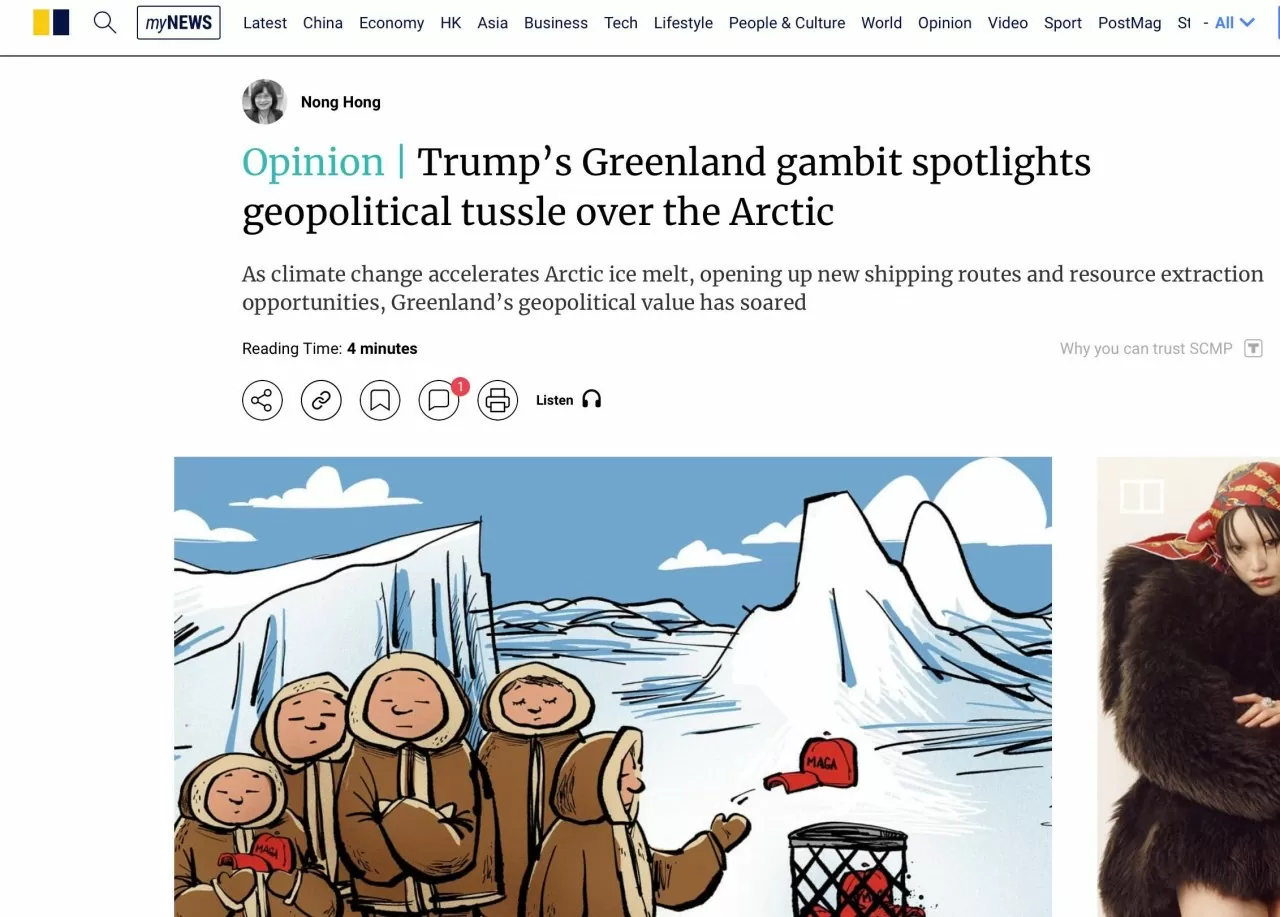 |
| The article "Trump's Greenland gambit spotlights geopolitical tussle over the Arctic" was published in the South China Morning Post on January 13. |
That is the opinion of Dr. Nong Hong (*) in the article "Trump's Greenland gambit spotlights geopolitical tussle over the Arctic" published in the South China Morning Post on January 13.
The Arctic "Door"
In August 2019, during his first term, US President Donald Trump made headlines with his proposal to buy Greenland from Denmark. Although the idea was met with skepticism and humorous reactions, it sparked a debate and shed light on Greenland’s role on the geopolitical map.
Ms. Nong Hong said that this is not a new idea. In 1868, the then US Secretary of State William H. Seward, shortly after purchasing Alaska, expressed interest in Greenland and Iceland as part of Washington's territorial expansion strategy. In 1946, the Truman administration also offered to pay Denmark $100 million in gold to buy Greenland, recognizing the strategic importance of this land in the context of the emerging Cold War.
Despite Denmark's refusal, the US could still establish military bases in Greenland, including at Pituffik - an important part of the country's Arctic strategy.
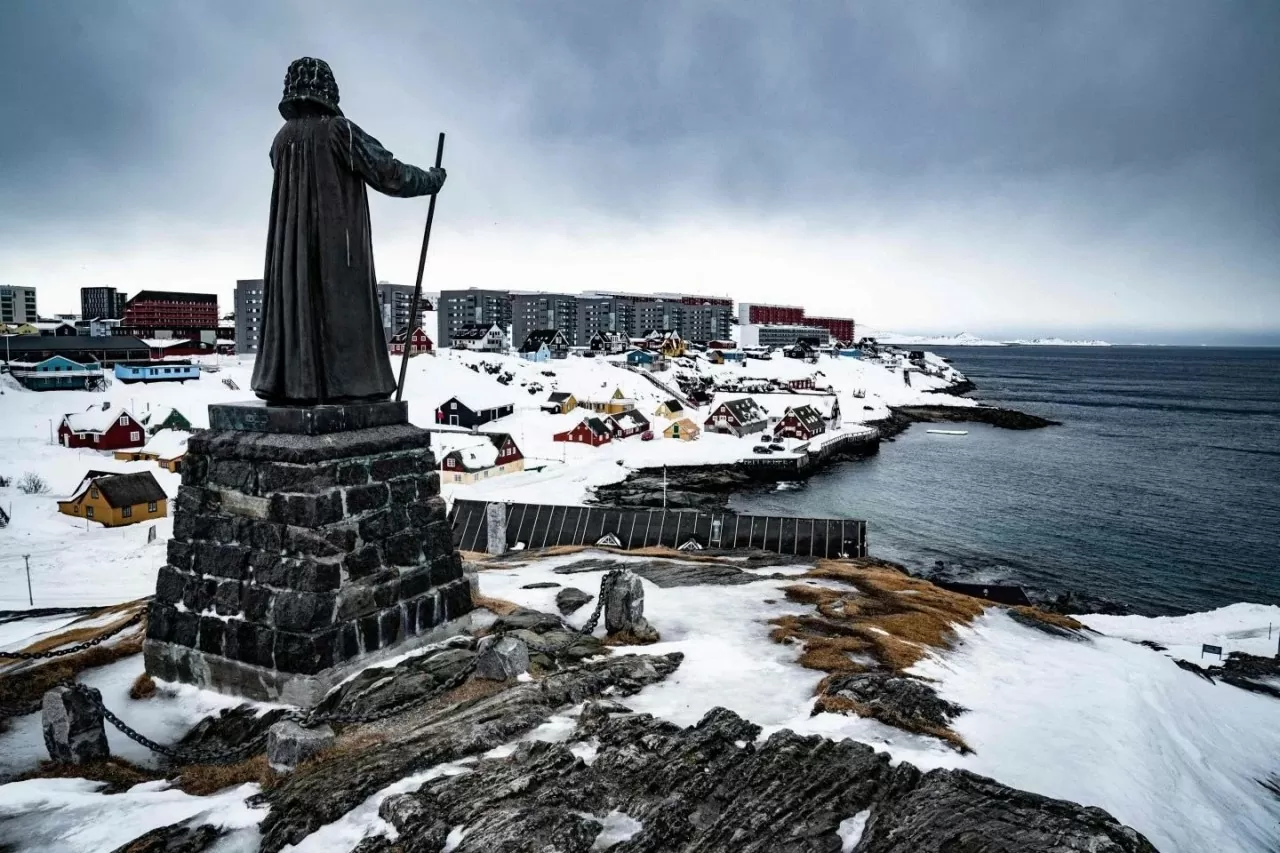 |
| Greenland is an autonomous territory of Denmark. (Source: AFP) |
According to the doctor, Greenland's appeal lies in its abundant natural resources such as rare earths, oil, gas, and its strategic location between North America and Europe. In particular, as climate change accelerates the melting of ice in the Arctic, opening up new shipping routes and opportunities for resource exploitation, Greenland's geopolitical value has also increased sharply. The US President-elect's interest in Greenland reflects Washington's long-standing recognition of the island's role in global affairs.
Under international law, the idea of the US buying Greenland raises complex questions. Greenland is an autonomous territory of Denmark. Copenhagen retains control over foreign affairs and defense, while the Greenland government manages internal affairs and has the right to pursue full independence through a referendum.
Therefore, Ms. Nong Hong affirmed that the purchase of Greenland requires the consent of both the Danish and Greenland governments . This transaction may also open negotiations under international treaties and the United Nations Charter, which emphasize the principle of self-determination of this land. Above all, all opinions must also go through the Greenland people to ensure their rights and interests.
International reaction
In fact, Mr. Trump’s proposal has drawn mixed reactions from Arctic stakeholders. In 2019, the Danish government quickly dismissed the idea as “absurd.” Greenland’s leader echoed Copenhagen’s sentiments, stressing its autonomy and rejecting any intention to buy it. Other Arctic nations, including Canada, Norway, and Russia, may have viewed Mr. Trump’s proposal with a mixture of humor and caution.
Ms. Nong Hong pointed out that for Canada, Greenland’s proximity to its Arctic territories reflects shared security and environmental concerns. While Canada is unlikely to support the US proposal, it will continue to monitor developments closely, supporting multilateral cooperation, environmental protection and ensuring the rights of indigenous peoples in addressing challenges in the region.
In addition, as an Arctic power, Russia may view US interest in Greenland as part of a broader strategy to contain Moscow’s ambitions in the region. Meanwhile, Norway and other Nordic countries, which value cooperation through the Arctic Council, are likely to view any unilateral action with skepticism.
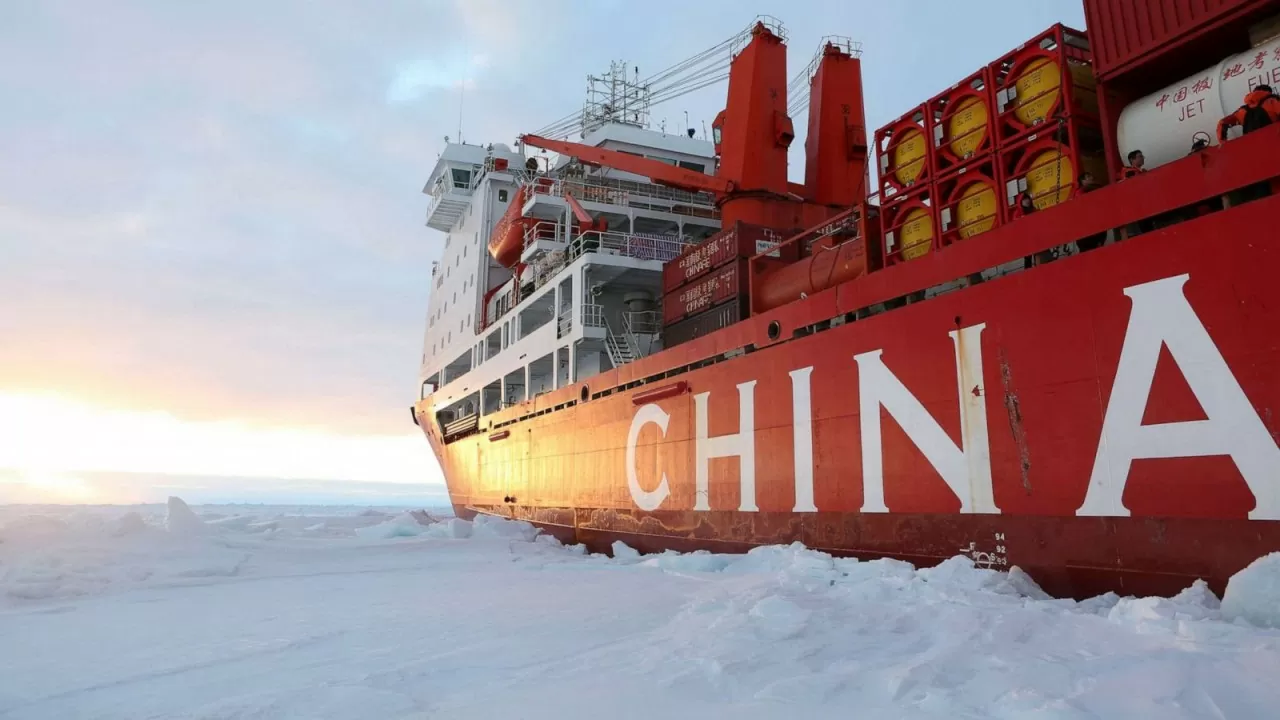 |
| China has invested heavily in infrastructure and mining in Greenland, viewing it as a link in its Arctic Silk Road initiative. (Source: ABC News) |
Ms. Nong Hong emphasized that the impact on China - an important factor in the development of the Arctic - cannot be ignored. Beijing has invested significantly in infrastructure and the mining industry in Greenland, viewing it as a link in the Arctic Silk Road initiative. Any attempt by the US to annex Greenland could disrupt China's Arctic strategy, thereby increasing US-China strategic competition.
Ms. Nong Hong emphasized that as a NATO member and close ally of the United States, Denmark always values its partnership with Washington but finds it difficult to accept a deal that undermines Greenland's national interests or autonomy.
The US’s particular interest in Greenland could also affect Denmark’s role in NATO and its relations with other Arctic states. Denmark will now “manage” to balance its alliance with the US and its commitment to Arctic cooperation through multilateral frameworks.
For Greenland, achieving economic independence through resource exploitation and expanding international partnerships has always been a top priority, according to Ms. Nong Hong. While some Greenland politicians see deeper ties with the United States as a golden opportunity to boost economic growth and improve infrastructure, others are more cautious, fearing that outside interference could undermine autonomy and overshadow the desire for independence. The US attempt to buy Greenland, even if unsuccessful, could spark debates about how to balance the region’s desire for autonomy with the need to attract foreign investment and establish strategic partnerships.
Self-determination and the territorial race
Another key factor shaping the decisions of Denmark and Greenland is the growing need for Arctic governance based on sustainability and indigenous rights. Any discussion of Greenland’s future must consider the aspirations of its people, who are faced with the challenges of climate change, economic development and cultural preservation.
Ms. Nong Hong affirmed that although the US President-elect’s idea of buying Greenland is unlikely to materialize, it reflects the growing role of the Arctic in global geopolitics. Arctic governance frameworks, especially the Arctic Council, have traditionally focused on environmental protection, scientific research and indigenous rights. However, growing geopolitical competition in the region is putting pressure on these frameworks to address security concerns.
Whether through diplomatic, economic, or territorial strategies, the US effort to increase its position in Greenland could affect the balance and relationships among members of the Arctic Council, thereby reshaping the organization’s agenda to prioritize security issues and geopolitical competition.
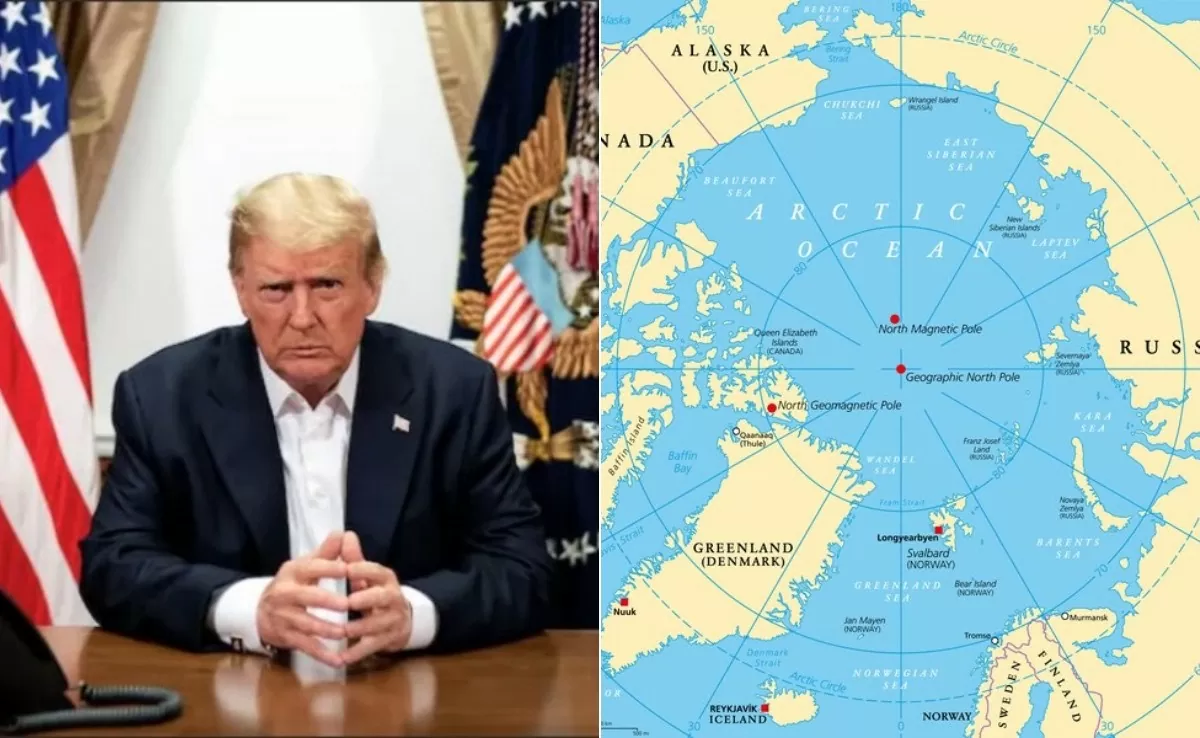 |
| The US President-elect's idea of buying Greenland reflects the growing role of the Arctic in global geopolitics. (Source: NDTV) |
The purchase of Greenland is unlikely, but the far-reaching implications for Arctic governance, international law, and great power competition cannot be underestimated. Addressing these challenges will require a sophisticated diplomatic strategy that respects national sovereignty and a commitment to sustainable development that benefits all Arctic stakeholders, including indigenous communities.
Above all, the future of the Arctic and the role of Greenland will be shaped not only by the ambitions of the great powers, but also by the resilience and aspirations of its people.
In conclusion, although President-elect Donald Trump’s proposal to purchase Greenland is unlikely to materialize, it has “illuminated” important issues related to the strategic position of this land in the context of global geopolitical competition. The far-reaching implications for Arctic governance, indigenous self-determination, and relations between major powers all need to be carefully considered. The future of Greenland and the Arctic will be determined not only by the ambitions of the “big guys” but also by the desires and resilience of the people here. Achieving sustainable cooperation and respecting the rights of stakeholders will be an important factor in maintaining peace and sustainable development in the Arctic region.
(*)Dr. Nong Hong is Executive Director and Senior Fellow at the Institute for China-America Studies in Washington, USA and a Senior Fellow of the Beijing Club for International Dialogue.
Source: https://baoquocte.vn/nuoc-co-greenland-cua-tong-thong-dac-cu-my-soi-chieu-cuoc-canh-tranh-dia-chinh-tri-tai-bac-cuc-300764.html






![[Photo] General Secretary To Lam attends the 80th Anniversary of the Cultural Sector's Traditional Day](https://vphoto.vietnam.vn/thumb/1200x675/vietnam/resource/IMAGE/2025/8/23/7a88e6b58502490aa153adf8f0eec2b2)

![[Photo] Prime Minister Pham Minh Chinh chairs the meeting of the Government Party Committee Standing Committee](https://vphoto.vietnam.vn/thumb/1200x675/vietnam/resource/IMAGE/2025/8/23/8e94aa3d26424d1ab1528c3e4bbacc45)





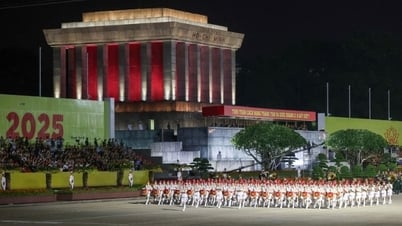
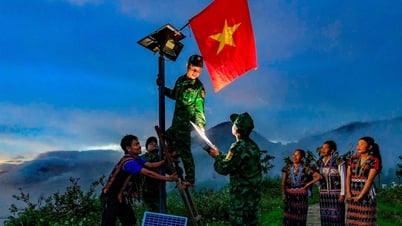


























































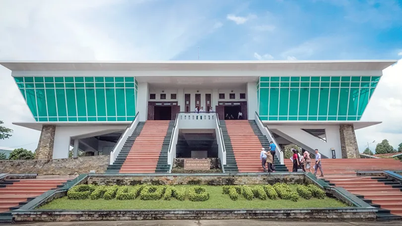

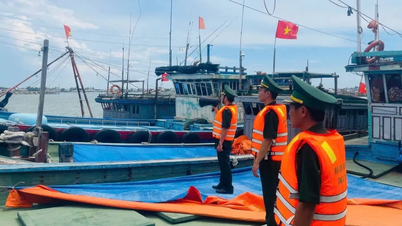

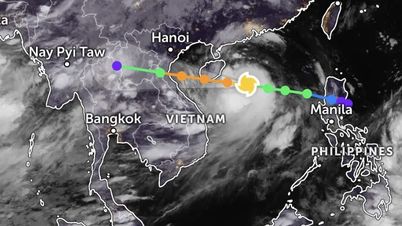
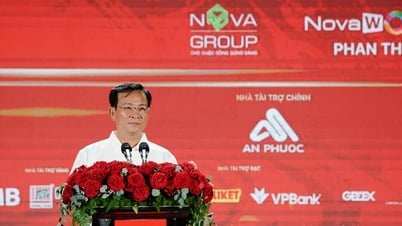
















Comment (0)